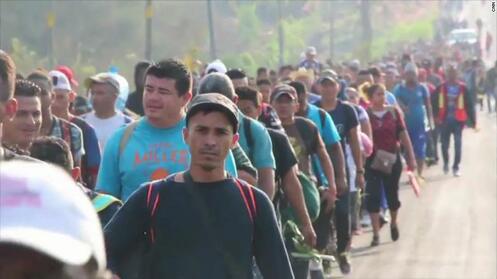 “Am I my brother’s keeper?” It’s an age-old question. Cain was the first to ask. He killed his brother Abel in a jealous rage (Genesis 4). God asks Cain what has happened to Abel and Cain responds, “Am I my brother’s keeper?” God knows that Cain has murdered his brother. It’s not complicated detective work. There are only four people living on earth at this point: Cain and Abel and their parents, Adam and Eve. The particulars of the story are less significant. Even as a kid I knew the story of the first human family was implausible: if Adam and Eve were the first people and they had two sons, where did Abel and Cain’s wives come from? I digress. What the story tells us about human nature is what matters most. This is why the story has lasted throughout time. It tells us that from the beginning, violence and jealousy have been a part of our human story. It tells us that selfishness has been as well. Perhaps these two go hand in hand. How else could Cain have killed his brother and then respond to God in such a callous way, ‘Am I my brother’s keeper?” Recently I have been overwhelmed by the callousness of humanity. If I am to be honest, I also witness on a daily basis the generosity and goodness of humanity. That said, I have been shocked by the unbridled nationalism that has flooded our country’s collective psyche. This nationalism seems too often coupled with violence (think Charlottesville) and jealousy (think “They’re taking our jobs!”). How could a country that erected the Statue of Liberty, whose plaque reads, “Give me your tired, your poor, your huddled masses yearning to breathe free,” turn away desperate families seeking asylum at our southern borders? Our nation is asking once again the age old question, “Are we our brothers’ and sisters’ keepers?” The answer for some is clearly, “No.” This NO is evident as we build walls, expand detainee camps, and deport people who came to America so young that they don’t know anyone in their country of origin. This NO is evident when we respond angrily on social media, “They would be welcomed if they came legally like the rest of us!” This NO is evident as we scoff at the desperation of young families who have walked for months seeking safety, and as we ignore children locked behind barbed wire, separated from their parents. I can just imagine everything that raced through Cain’s head before he responded to God: Don’t blame me. Not my problem. Not my responsibility. Abel thought he was better. He deserved what he got. Anyhow his death isn’t my fault-- you’re to blame. You favored him. Cain’s explanation rings as hollow as the nationalists’ declaration that the only way to keep our country safe is by keeping everyone different out. Not my problem. Not my responsibility. Let someone else deal. Me first. America first. End of story. “Am I my brother’s keeper?” Cain asked. The answer to Cain’s question from a Christian perspective is simple: YES. You are your brother’s keeper. You are your neighbor’s keeper. You are your annoying co-worker’s keeper. You are even your mother-in-law’s keeper. You are your community’s keeper. You are the keeper of the dehydrated child, clinging to her parents as they seek safety in a new land. You are the keeper of the many separated families locked in detention centers. Yes, you are your brother and sister’s keeper. Before Cain murders his brother, God tells Cain he has a choice. He can, if he chooses, master his sin (Genesis 4:7). We still possess this choice. We can choose denial and ask the maddening question, “Am I my brother’s keeper?” Or we can choose to live utterly interconnectedly, seeing ourselves as deeply related to all within our human story. We can choose to respond in a way that includes all and even at times places others before ourselves. We can welcome asylum seekers across our border and offer them safety and shelter and even love. We can say yes, come not only into my backyard, but come into my home as well. We can build longer tables instead of taller walls. We can say, “Yes, we are each other’s keepers.”
0 Comments
|
Categories |
 RSS Feed
RSS Feed